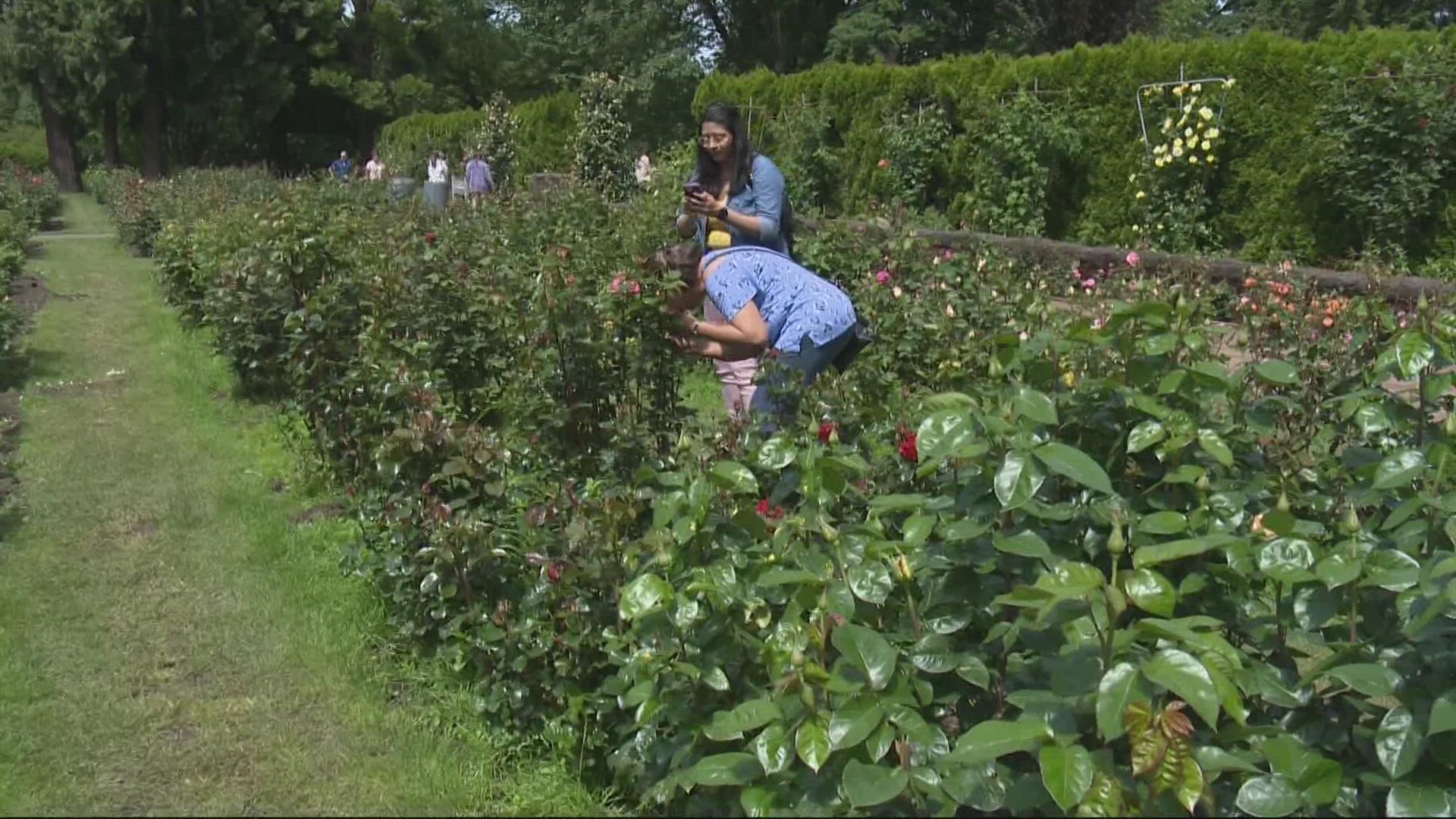PORTLAND, Oregon — Portland's acclaimed International Rose Test Garden is a big tourist attraction for the city — not only during the Rose Festival, but all year long. Now, some worry the city has been steadily neglecting the garden's maintenance, even prior to the pandemic.
“It just makes me sick to see this gorgeous garden plummet like it has,” said Harry Landers. “You shouldn't see weeds in the beds … these roses are hungry, the lawn is starving.”
Landers spent nearly 30 years as the International Rose Test Garden’s botanic specialist and curator. Since he retired in 2017, Landers said he has watched parts of the garden fall into disarray.
RELATED: Rose Festival volunteers put finishing touches on floats before the Grand Floral Parade this weekend
The rose bed edges, once clean and straight, are now blurred with wayward grass. In many rose beds, tufts of grass and weeds grow between rose bushes. The once manicured boxwood shrubs in the Shakespeare Garden are now riddled with blight. Thistle and other weeds which Landers said were once never allowed to thrive in the garden are now part of its landscape.
“The City of Roses? Now it's the city of weeds,” he quipped.
Landers said he’s made multiple calls to Portland city officials and to Portland Parks & Recreation hoping to share his concerns and offer help. He said they have all ignored him.
Regarding the garden’s condition, a spokesperson for Portland Parks & Recreation offered this statement to KGW:
“Portland Parks & Recreation (PP&R)’s International Rose Test Garden holds a special place in Portland’s identity, and PP&R’s dedicated, professional staff are making improvements as conditions and staffing allow. We continue to be challenged by staffing issues across the bureau, including with bringing on seasonal maintenance workers for the busy summer season. There are crews and volunteers working in the Garden regularly to address weeds and continue improvements, with more workers being recruited.”
During his tenure with the city, Landers said he did not approach his position as an office job. Rather, he said he spent most of his time in the garden itself, tending to maintenance and directing field crews in person. He said volunteers were mainly tasked with “deadheading” spent roses
Landers believes the reason for the garden’s present disrepair reaches beyond the lack of volunteers, and he doesn’t think anyone with the power to fix it shares his concerns.
“It's like your child,” said Landers. “If your child is sick and no one listens, what do you do? You start raising a lot of fuss. This was my baby.”

